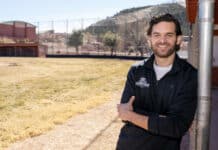Familiar songs, performed by local talent, could become less common in the Sedona area.
In a good economy, paying fees for the use of copyrighted music, and allowing musicians to perform perennial favorites in a local restaurant or nightclub, isn’t such a big deal.
When the economy slows, however, those fees might just be one of the first things to go, which appears to be the case for some establishments, particularly for businesses that pay fees to The American Society of Composers, Authors and Publishers; Broadcast Music Inc.; and SESAC. Fees are paid for copyrighted music to be played. Musicians who are members of these organizations also cannot play at venues that choose not to pay the fees.
Prior to the economic downturn, restaurant owner Joe DeSalvo said he had little problem paying anywhere from $2,000 to $3,000 a year for licensing fees that allowed musicians to play at his establishment. That is no longer the case, however.
“We used to have a Latino night,” DeSalvo said. “Just that one night alone would justify paying for the license fees. When Arizona passed those immigration laws that affected the community, that killed Latino night and the extensive drinking and driving laws that we have in Arizona have reduced the people that we have coming in the bars. In the end, as business got worse for all these reasons, you begin to notice things on your profit and loss statement that would now stand out as a large expense that you really couldn’t justify.”
The fees to the three agencies, he said, serve as a disservice to local musicians who may find themselves with fewer venues to perform in.
“I was sued by one of these organizations for not paying these fees, which I felt were inappropriate, disproportionate, etc., and now I’m in a settlement situation with them,” DeSalvo said.
As a result, DeSalvo said entertainment that would incur further licensing fees will not be offered at his establishment.
“The licensing fees are extensive,” he added.
Wedding receptions and private parties are exempt from some licensing rules, DeSalvo added.
“As soon as it opens to the public, the licensing is required,” DeSalvo said.
Should there be an increase in the demand for live music, he said, he might consider a way to offset the cost.
Solo musicians, disc jockeys, bands and more are included in the licensing fees policies, DeSalvo said.
Local musician Susannah Martin said there are certain restaurants where she may no longer be able to play as a result of the fees charged to businesses. Martin plays a number of songs written by other performers when she plays at local venues, though she said she plans to move to San Diego by the end of the month.
“My attitude is kind of compassionate and neutral in a way, because it is expensive. The copyright fees, the usage fees, and I’m not sure exactly what they are but it could be a few hundred dollars a month for these clubs just to have live music where someone can play a Sting song or can play a Beatles tune,” Martin said.
Charges from ASCAP, she said, have been going on for decades in order for artists to receive royalties for their music.
“I’m thinking that Sedona has been under the radar all these years and it’s been found,” Martin said, adding she supports the fees for musicians and other artists.
“I just don’t think the laws are proportional to what businesses can afford,” Martin said. “Small businesses, especially in the slow season, can barely afford to pay a band, let alone pay extra fees for hiring that band. Everybody is struggling with the economy in Sedona, so I understand the decision of club owners.”
Martin performs jazz, Brazilian jazz and a number of pop tunes. Most of the music she performs is copyrighted.
“It means that places that are deciding they can’t afford [ASCAP] fees, I’m not going to be able to play there anymore,” Martin said.



















